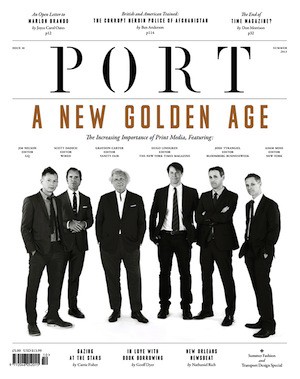Chicks Doing Chick Stories


There are two issues at play here. One explanation for this assumption is that the type of “serious” journalism that women’s magazines do — an article about the Chinese marriage crisis in Marie Claire, a profile of political brothers Julian and Joaquin Castro in Vogue, a piece about how to spot an ovarian cyst in Cosmo — isn’t respected as much as the “serious” journalism in men’s magazines. This is supported by the sense among female journalists that they’ll limit their career trajectories if they go too far in a woman-oriented direction. Janet Reitman, who writes for Rolling Stone and has written for GQ and Men’s Journal, refuses to write for women’s magazines. When she appeared on the Longform podcast in 2012, she explained it this way: “I was never going to be a ‘chick’ you know, doing ‘chick stories.’ … The reality is, and continues to be, that the women who write those stories are ghettoized into the women’s magazine ghetto.” Elizabeth Gilbert, who made her name writing for GQ before she became a best-selling author, expressed a similar sentiment to the Rumpus: “I gave a lot of speeches in bars about how much better the men’s magazines were than the women’s magazines.” The irony, she continued, is that “they’re not. You open up the men’s magazines and there’s talking about shoes too.”
Jessica Grose has a piece up over on The New Republic about lady magazines and “serious” journalism, inspired in part by the last week’s all-male Port cover and in part by the fact that women’s magazines have received zero ASME nominations for reporting in the past 30 years. Grose talks to a lot of editors who deal with this issue directly, but it’s especially interesting to hear female writers explain the dude mag/lady mag gulf from their perspectives. [The New Republic]